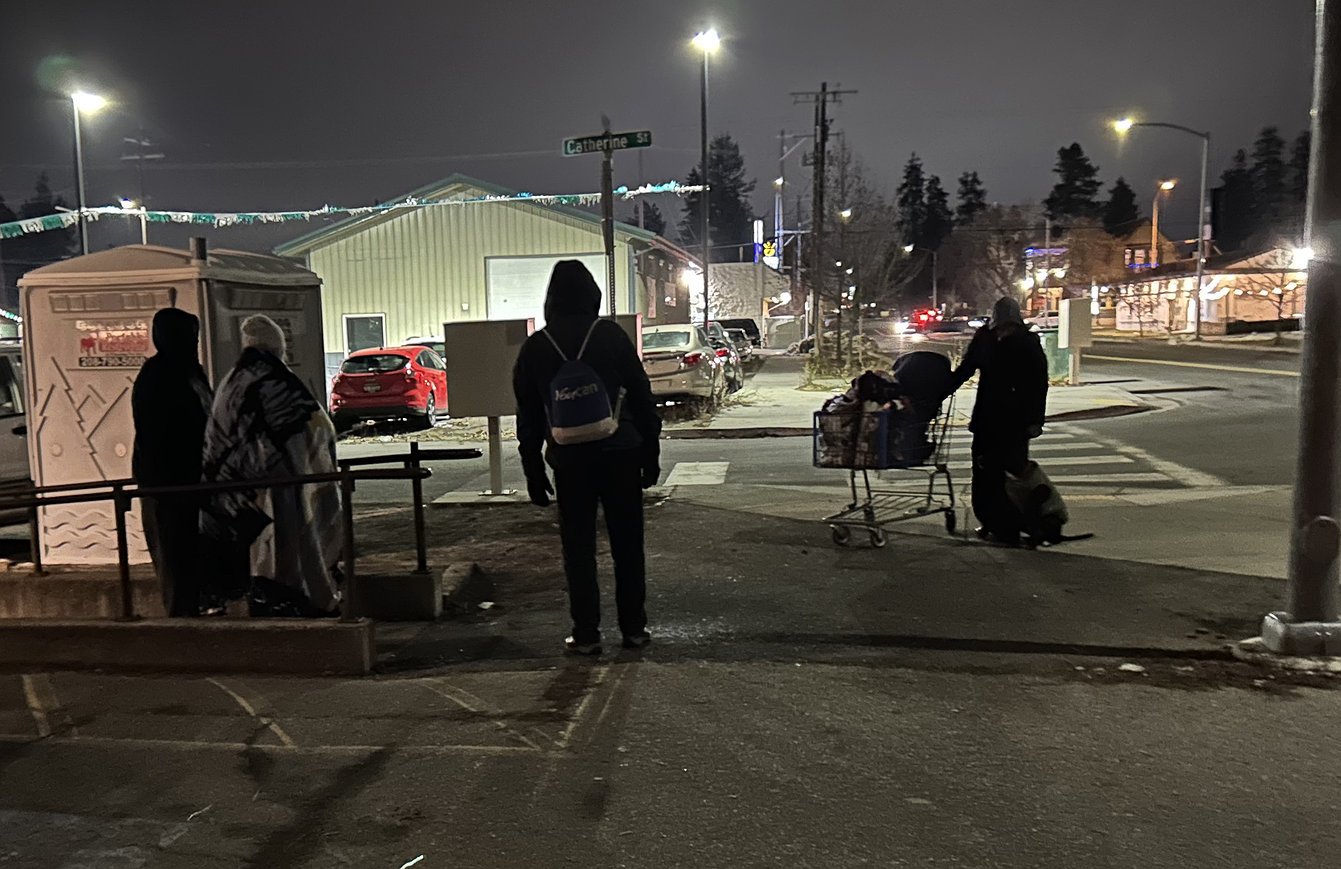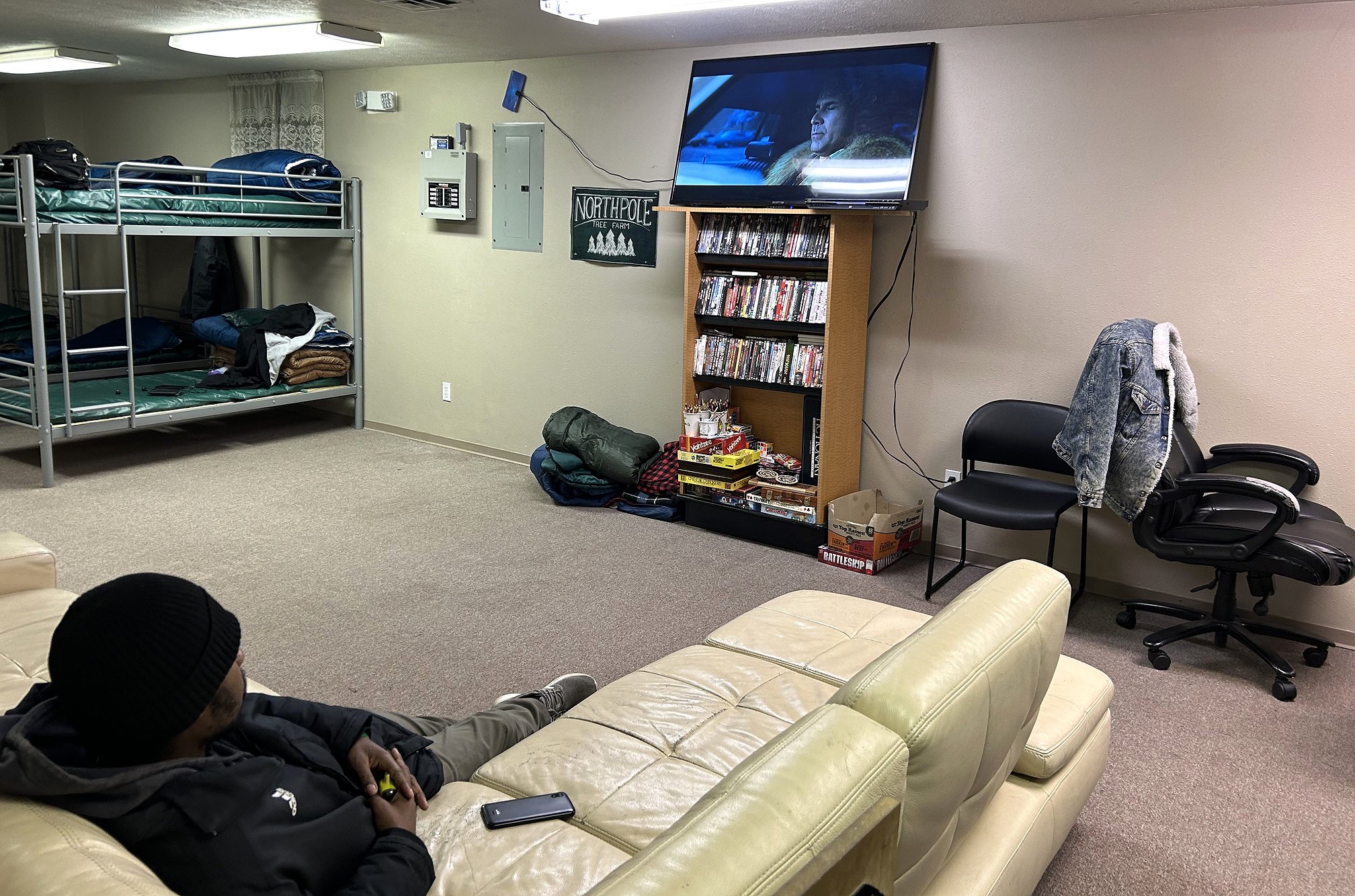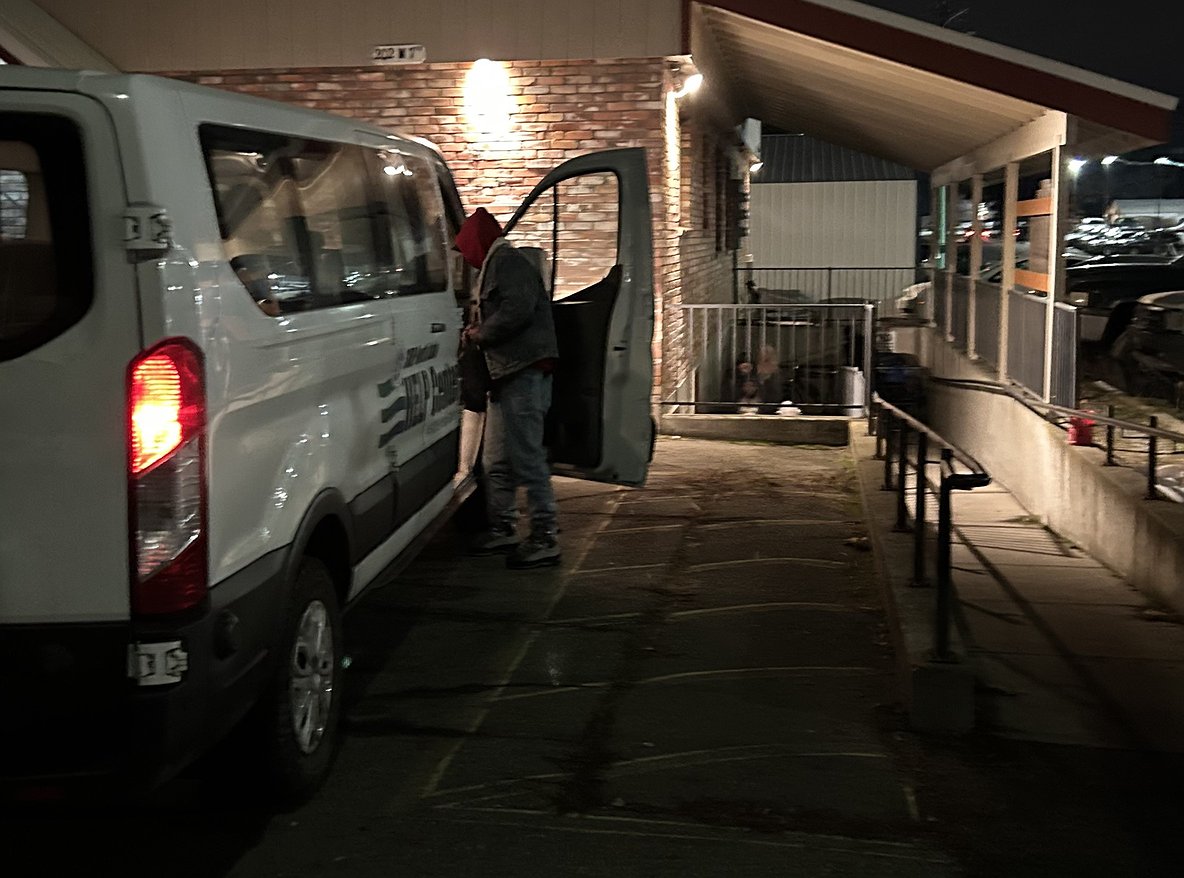Kootenai's County only warming center could exceed capacity as cold snap approaches
BILL BULEY | Hagadone News Network | UPDATED 11 months, 1 week AGO
Bill Buley covers the city of Coeur d'Alene for the Coeur d’Alene Press. He has worked here since January 2020, after spending seven years on Kauai as editor-in-chief of The Garden Island newspaper. He enjoys running. | January 19, 2025 1:09 AM
When Terry Collins arrived in Kootenai County in early December, he was homeless, so he slept outside. A small heater and sleeping bag helped fend off the icy winter cold.
But that wasn’t his main concern.
“When you’re out there with nowhere to go, you go back into survival mode,” Collins said.
It’s not easy to sleep when you're on high alert, so it makes for a long, restless night.
That’s why he’s thankful for St. Vincent de Paul North Idaho’s warming shelter in Post Falls that opened for the season nearly four weeks ago.
Collins, who came here from California where he fought drug addiction, said he’s trying to find a job and a place of his own, but both take time and money.
Until then, the basement warming shelter on Seventh Street, which offers the basics of a bed and food, is a haven.
“For me, this has been like a blessing. I don’t know where I’d be at,” he said.
“We have to have it, brother,” Collins added.
Scott Ferguson wants to make sure they do.
The executive director of the nonprofit St. Vincent de Paul North Idaho is worried that the shelter, with a capacity of just 25 people, may have to turn people away as the coldest conditions of winter approach.
It's come close, but they haven’t had to do that — yet.
“Our fear is, we won’t have space," Ferguson said. “Our desire is to serve as many people as needed, but we’re limited in what we can do.”
“We don’t want to turn anyone away,” he added.
Not that it hasn't been cold enough already. One person recently arrived with frostbite on their hands.
Lows in the coming nights are projected to dip into the teens, with the possibility of single digits. Mix in windchill and it can be life-threatening to be outdoors.
In previous years, the St. Vincent’s warming shelter around the corner could sleep up to about 60 people. But due to building code issues that would have required costly repairs and renovations, money St. Vincent’s doesn’t have, another space was found.
It's filling up.
“We've already seen more as it’s getting cold," said Jennifer Struckman, case manager.
Last year, the shelter only opened at 28 degrees. This year, the benchmark is 33 degrees, thanks to increased donations.
“That’s huge for these guys,” Ferguson said. “They let out a big cheer when we told them."
A handful of people stood in 30-degree temperatures as they waited for the shelter to open at 6 p.m. Thursday. Some nights, they lined up earlier to be sure to get a place.
Because it’s the only emergency warming shelter in the area, those turned away face the night outside.
And in Idaho, that’s not a small number.
According to the 2024 Annual Homeless Assessment Report by the U.S. Department of Housing and Urban Development, Idaho had 2,750 people who experienced homelessness, an increase of 20% from the 2023 count. About half of those were unsheltered, living in vehicles or outside.
The report said 59% of the state’s homeless were adults, 41% were families and 209 were veterans. Most were men between the ages of 18 to 55.
A Point-in-Time Count conducted in January 2024 found that 93 people experienced homelessness in the five northern counties of Idaho.
Before the winter is over, the warming shelter will provide more than 1,000 bed nights. While a shuttle service delivers clients from Father Bill’s Kitchen in Coeur d’Alene to the shelter, some find their own way by foot.
It's not inexpensive to keep the doors open.
It costs about $850 a night to operate the shelter and nearly $100,000 a year. Paid staff keep watch all night to be sure all is peaceful.
Ferguson hopes the public might want to help with donations of money, food, clothing, hats, gloves or sleeping bags.
“We would love it if they wanted to stand right alongside of us,” he said.
The shelter's accommodations are basic.
A table and chair are in the common area. There's a couch for watching TV, and bunk beds in the corner. The kitchen has food and drinks with a microwave to heat things up. Clothing is available.
But most importantly it provides a warm, safe place to sleep.
The shelter is open from 6 p.m. to 6 a.m. It’s lights out at 10. Those who wish can take the shuttle to Father Bill’s Kitchen in Coeur d'Alene in the morning, where they can have breakfast, lunch and perhaps hang around for dinner.
Some will wind up at the St. Vincent's Help Center in Coeur d’Alene, where they can find out about services available to them.
Todd Duke, who landed a seasonal job with St. Vincent’s, drives the van that takes people from Father Bill’s Kitchen to the shelter. There, he does his best to be sure everyone has what they need.
But he does more. Some could use encouragement, so he offers advice and shares his experiences.
“I’ve been in their situation,” he said. “If I can help them, I’ll help them any way I can.”
Duke moved to Kootenai County in 2017 from West Virginia. He has battled drugs, was homeless and spent time in prison.
“I know what they’re going through," he said.
Duke, who has been living at St. Vincent’s shelter for men in Coeur d’Alene, is about to get his own apartment, for which he thanked St. Vincent’s.
Having a roof over his head means everything to him.
“I know I have a place I can call home,” Duke said.
John, who declined to give his last name, said the shelter has saved lives.
Those with compromised health conditions can face hypothermia or worse when it’s freezing, he said.
“You need a place to get out of the cold,” John said. “This place needs to be open.”
Like Terry Collins, John said trying to sleep outside puts a person in surveillance mode, always keeping watch. In the winter, the combination of cold and sleeplessness can mean disaster.
“You’re making sure all the noises around you are not a threat,” he said.
The warming shelter, as far as John is concerned, means life.
“Once you’re in here, there’s no threat," he said.
ARTICLES BY BILL BULEY

Nonprofit foundation helps family become homeowners for first time
Nonprofit foundation helps family become homeowners for first time
The Young Family’s Foundation launched about a year ago with a mission "to empower young, hardworking families to achieve the dream of home ownership. Even if a family saved $25,000, they would still be $19,000 short of the down payment needed to buy a $550,000 home, which is the median price in Kootenai County. It’s estimated that only about 20% of area households can afford to buy a home.

Nancy Edinger decorates Coeur d'Alene home, keeps husband Ron's spirit alive
Nancy Edinger decorates Coeur d'Alene home, keeps husband Ron's spirit alive
Nancy Edinger decorates Coeur d'Alene home, keeps husband Ron's spirit alive

Nonprofit foundation helps family become homeowners for first time
Nonprofit foundation helps family become homeowners for first time
The Young Family’s Foundation launched about a year ago with a mission "to empower young, hardworking families to achieve the dream of home ownership. Even if a family saved $25,000, they would still be $19,000 short of the down payment needed to buy a $550,000 home, which is the median price in Kootenai County. It’s estimated that only about 20% of area households can afford to buy a home.







